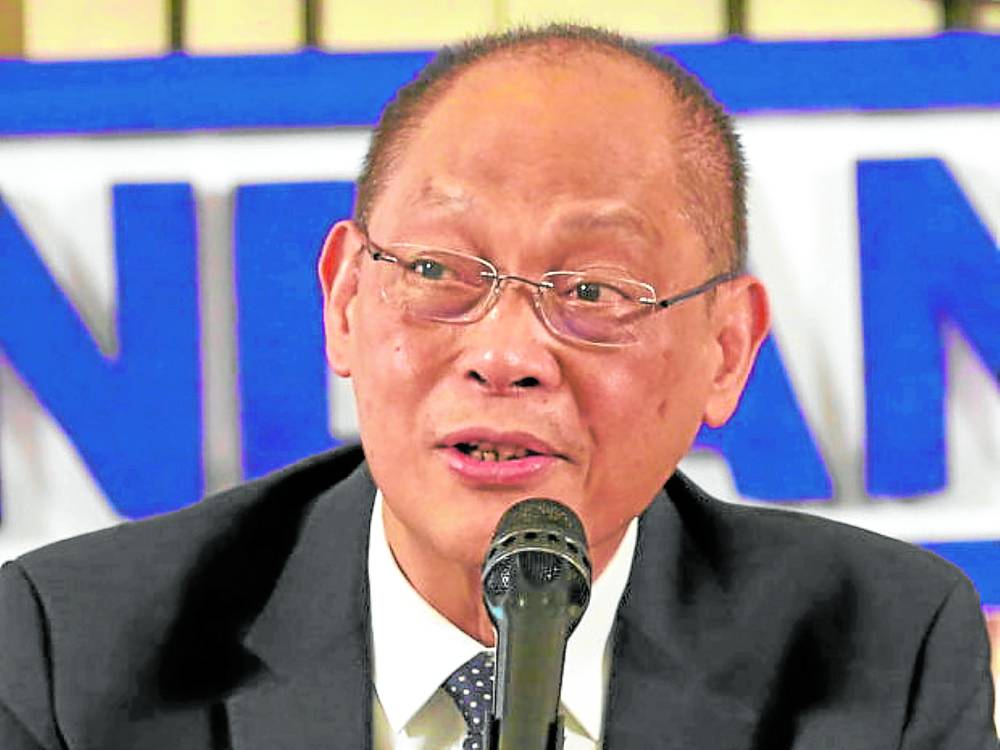MANILA, Philippines—The incoming administration of Ferdinand “Bongbong” Marcos Jr. will stick to the goal of the outgoing Duterte administration of reaching the highest “A” credit rating which translates to the lowest costs of public and private borrowings.
Marcos Jr., who will assume office as the 17th Philippine president on June 30, will also aspire to bring down poverty rate and revert public debt and budget deficit ratios to pre-pandemic levels, according to Bangko Sentral ng Pilipinas Governor Benjamin Diokno.
In an interview with ANC on Monday (June 6), Diokno, who is also the incoming finance secretary and chief economic manager of Marcos Jr., expressed confidence that an “A” credit rating from debt watchers can “definitely” be achieved in the next six years.
“I think that the prospects are bright, that we will get [it] — we were almost there, but the pandemic got in the way. And during the entire pandemic period, the rating agencies — both international and regional rating agencies — affirmed our investment grade,” Diokno said.
“So I’m confident that with the program that we are going to unveil in a few weeks, we will achieve the ‘A’ rating that we are aspiring for,” Diokno said.
The Inquirer asked Diokno if the Marcos Jr. administration’s program to reach the Philippines’ highest credit ratings would be aligned with or perhaps be distinct from the proposed fiscal consolidation plan being pitched by Duterte’s outgoing economic team. It listed mainly higher taxes, deferral of personal income tax relief and spending cuts as key measures needed to pay off a record debt and narrow budget deficits. Diokno, however, did not reply.
The Philippines’ credit rating status remained investment grade amid the prolonged pandemic, although some downgraded their outlook — or the timing of possible upgrades — to “negative” or a short-term deferral. The country currently enjoys investment-grade credit ratings from the top three debt watchers—Fitch Ratings, Moody’s Investors Service, and S&P Global Ratings.
Before the pandemic, the Duterte administration unveiled a “road to ‘A'” agenda that would let the government borrow at lower rates to finance big-ticket infrastructure projects. Duterte’s economic team had hoped to achieve this before the incumbent President is gone on June 30.
Credit ratings are a measure of a government’s creditworthiness. As the stability of state finances was also related to a country’s performance, credit scores serve as a proxy grade for the economy.
Improved ratings would allow the government to demand lower rates when it borrows from lenders, which could translate to lower interest rates for consumers and businesses borrowing from banks using government-issued debt paper as benchmarks for their loans.
When the Philippines becomes an upper-middle income country, it would lose the access to preferential interest rates it was currently enjoying whenever it borrows from its bilateral partners as well as from multilateral institutions.
Diokno said the Department of Finance (DOF), under his watch, will focus on sustaining robust economic growth and making it broad-based to reduce poverty while repaying record-high debts as well as narrowing the fiscal deficit back to pre-pandemic levels of 3 percent of gross domestic product (GDP).
“We feel that if we grow at around 6 percent [yearly] on a consistent basis, poverty in this country will be down to single-digit by the end of the Marcos regime. Also by pursuing growth we will solve our revenue problem. That will solve our deficit problem and that will also help us achieve our goal to be an upper-middle income country in a few years,” Diokno said.
Asked if the Marcos Jr. administration would impose new or higher taxes as proposed by the Duterte economic team, Diokno said he and his team will first implement the “much-better” tax system put in place by reforms during the current administration.
“There’s room for better tax collection using digitalization,” he said, citing a plan to introduce further reforms at the Bureau of Customs (BOC) to shore up revenues at the country’s second-biggest revenue agency, long bewailed to be also among the government’s most corrupt agencies.
Diokno said that while the current tax regime wasn’t perfect just yet, it can still be improved further. “We will implement the new tax system and improve later on,” he said, citing tax reforms on personal and corporate income taxes.
Diokno was also cold to budget cuts, or reduced spending, on supposedly non-productive expenditures as proposed in the fiscal consolidation pitch. He said the government needs to roll out more public infrastructure by sustaining the ambitious “Build, Build, Build” program while continuing to invest in human resources development.
But at an online seminar on Monday, economists at the Manila-based Asian Development Bank (ADB) said fiscal consolidation was needed across the Asia-Pacific region, including the Philippines, to repay debts and narrow deficits wrought by the pandemic.
They proposed doing this mainly by expanding the value-added tax (VAT) base, improving collection of personal income and property taxes, imposing environment-related taxes like carbon tax, increasing cigarette taxes, as well as slapping levy on digital transactions.
For ADB economists, taxpayers may be willing to shell out more if there’s a higher quality of public goods and services provided to them.


